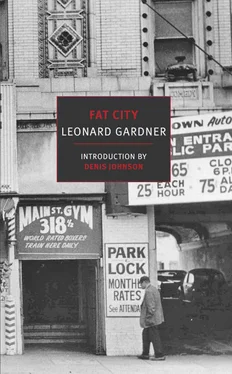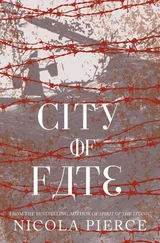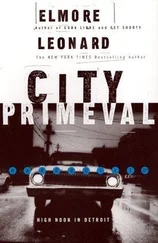Leonard Gardner - Fat City
Здесь есть возможность читать онлайн «Leonard Gardner - Fat City» весь текст электронной книги совершенно бесплатно (целиком полную версию без сокращений). В некоторых случаях можно слушать аудио, скачать через торрент в формате fb2 и присутствует краткое содержание. Год выпуска: 2015, Издательство: NYRB Classics, Жанр: Современная проза, на английском языке. Описание произведения, (предисловие) а так же отзывы посетителей доступны на портале библиотеки ЛибКат.
- Название:Fat City
- Автор:
- Издательство:NYRB Classics
- Жанр:
- Год:2015
- ISBN:нет данных
- Рейтинг книги:5 / 5. Голосов: 1
-
Избранное:Добавить в избранное
- Отзывы:
-
Ваша оценка:
- 100
- 1
- 2
- 3
- 4
- 5
Fat City: краткое содержание, описание и аннотация
Предлагаем к чтению аннотацию, описание, краткое содержание или предисловие (зависит от того, что написал сам автор книги «Fat City»). Если вы не нашли необходимую информацию о книге — напишите в комментариях, мы постараемся отыскать её.
Fat City — читать онлайн бесплатно полную книгу (весь текст) целиком
Ниже представлен текст книги, разбитый по страницам. Система сохранения места последней прочитанной страницы, позволяет с удобством читать онлайн бесплатно книгу «Fat City», без необходимости каждый раз заново искать на чём Вы остановились. Поставьте закладку, и сможете в любой момент перейти на страницу, на которой закончили чтение.
Интервал:
Закладка:
“Wherever you go there’s always a nigger hollering his head off,” muttered the old man beside Tully.
“Just give me a row of good-size onions and call me happy.”
“You can have them,” said Tully.
“You want to know how to get you sixty sacks?”
“How’s that?”
“Don’t fool around.”
“You telling me I wasn’t working as hard as any man in that field?”
“I don’t know what you was doing out there, but them onions wasn’t putting up no fight against me. Driver, what you waiting on? I didn’t come out here to look at no scenery.”
They were driven to a labor camp enclosed by a high Cyclone fence topped with barbed wire, and as the crew rose to join the pay line outside, the driver blocked the way. “Now I want each and every one of those onion knives. I want you to file out one by one and I want every one of those knives.”
“You going look like a pincushion,” said the sixty-sack Negro.
The crew handed over the short, wooden-handled knives, and the driver frowned under the exertions of authority. “One by one, one by one,” he repeated, though the aisle was too narrow for departing otherwise.
Tully stepped down into the dust and felt the sun again on his burned neck. Standing in the pay line behind the old man, he looked down the rows of whitewashed barracks. A pair of stooped men in loose trousers, and shirts darkened down the backs with sweat, passed between buildings. In the brief swing of a screen door Tully saw rows of iron bunks. A Mexican with both eyes blackened crossed the yard carrying a towel. Tully moved ahead in the line. The paid were leaving the window of the shack and returning to the bus, some lining up again at a water faucet.
“Is that all you picked?” the paymaster demanded of the old man. “What’s the matter with you, Pop? If you can’t do better than that tomorrow I’m going to climb all over you.”
“Well, it takes a while to get the hang of it,” came the grieving reply.
Two dimes were laid on the counter under the open window. “Here’s your money.”
The old man waited. “Huh?”
“That’s it.”
The creased neck sagged further forward. Slowly the blackened fingers, the crustaceous nails, picked up the dimes. The slack body showed just the slightest inclination toward departing, though the split shoes, the sockless feet, did not move, and at that barely discernible impulse toward surrender, three one-dollar bills were dealt out. With a look of baffled resignation the man slouched away, giving place to Billy Tully, who stepped up to the grinning paymaster with his tally card.
As the bus passed out through the gate, Tully saw, nailed on a whitewashed wall, a yellow poster.
BOXING
ESCOBAR
VASQUEZ
The posters were up along Center Street when the bus unloaded in Stockton. There was one in the window of La Milpa, where Tully laid his five-dollar bill on the bar and drank two beers, eyeing the corpulent waitress under the turning fans, before taking the long walk to the lavatory. He washed his face, blew his dirt-filled nose in a paper towel, and combed his wet hair.
On El Dorado Street the posters were in windows of bars and barber shops and lobbies full of open-mouth dozers. Tully went to his room in the Roosevelt Hotel. Tired and stiff but clean after a bath in a tub of cool gray water, he returned to the street dressed in a red sport shirt and vivid blue slacks the color of burning gas. Against the shaded wall of Square Deal Liquors, he joined a rank of leaners drinking from cans and pint bottles discreetly covered by paper bags. Across the street in Washington Square rested scores of men, prone, supine, sitting, some wearing coats in the June heat, their wasted bodies motionless on the grass. The sun slanted lower and lower through the trees, illuminating a pair of inert legs, a scabbed face, an out-flung arm, while the shade of evening moved behind it, reclaiming the bodies until the farthest side of the park had fallen into shadow. Billy Tully crossed the sidewalk to the wire trash bin full of empty containers and dropped in his bottle. Over the town a dark haze of peat dust was blowing from the delta fields.
He ate fried hot dogs with rice in the Golden Gate Café, his shoes buried in discarded paper napkins, each stool down the long counter occupied, dishes clattering, waitresses shouting, the cadaverous Chinese cook, in hanging shirt and spotted khaki pants piled over unlaced tennis shoes, slicing pork knuckles, fat pork roast and tongue, making change with a greasy hand to the slap slap of the other cook’s flyswatter.
Belching under the streetlights in the cooling air, Tully lingered with the crowds leaning against cars and parking meters before he went on to the Harbor Inn. Behind the bar, propped among the mirrored faces in that endless twilight was another poster. If Escobar can still do it so can I, Tully thought, but he felt he could not even get to the gym without his wife. He felt the same yearning resentment as in his last months with her, the same mystified conviction of neglect.
At midnight he negotiated the stairs to his room, its walls covered with floral paper faded to the hues of old wedding bouquets. Undressing under the dim bulb, he stared at the four complimentary publications on the dresser: An Hour With Your Bible. El Centenela y Heraldo de la Salud. Signs of the Times — The World’s Prophetic Monthly. Smoke Signals — A Renowned Anthropologist Marshals the Facts on What Smoking Does to Life Before Birth . He wondered if anyone ever read them. Maybe old men did, and wetbacks staying in off the streets at night. And was this where he was going to grow old? Would it all end in a room like this? He sat down on the bed and before him on the wall was the picture of the wolf standing with vaporized breath on a snow-covered hill above a lighted farm. Then the abeyant melancholy of the evening came over him. He sat with his shoulders slumped under the oppression of the room, under the impasse that was himself, the utter, hopeless thwarting that was his blood and bones and flesh. Afraid of a crisis beyond his capacity, he held himself in, his body absolutely still in the passing and fading whine and rumble of a truck. The blue and gold frame, the long cord hanging from the molding, the discolored gold tassel at its apex, all added to the feeling that he had seen the picture in some room in childhood. Though it filled him with despondency he did not think of taking it down, or of throwing out the magazines and pamphlets and removing from the door the sign
IF YOU SMOKE IN BED
PLEASE LET US KNOW
WHERE TO SEND YOUR ASHES.
It did not occur to him that he could, because he did not even feel he lived here.
In the dark he arranged himself with tactical facility in the lumpy terrain of the mattress. When the pounding came again on the door, he lunged up in the blackness crying: “Help!”
Out in the hall the hoarse voice warned: “Four o’clock.”
10
Confidence, Ruben Luna believed, was the indispensable ingredient of success, and he had it in abundance — as much faith in his destiny as in the athletes he trained. In his own years of battling he had had doubts which at times became periods of terror. With a broken jaw wired into silence, he had sucked liquid meals through a tube, wondering if he were even sane. After a severe body beating and a bloody urination in the dressing room, he had wondered if the big fights and large sums he had thought would be coming but never came could be worth what he had already endured. But now Ruben’s will was like a pure and unwavering light that burned even in his sleep. It was more a fatalistic optimism than determination, and though he was not immune to anxiety over his boxers, he felt he was immune to despair. Limited no longer by his own capacities, he had an odds advantage that he had never had as a competitor. He knew he could last. But his fighters were less dependable. Some trained one day and laid off two, fought once and quit, lost their timing, came back, struggled into condition, gasped and missed and were beaten, or won several bouts and got married, or moved, or were drafted, joined the navy or went to jail, were bleeders, suffered headaches, saw double or broke their hands. There had been so many who found they were not fighters at all, and there were others who without explanation had simply ceased to appear at the gym and were never seen or heard about again by Ruben, though once in a while a forgotten face returned briefly in a dream and he went on addressing instructions to it as though the intervening years had never been.
Читать дальшеИнтервал:
Закладка:
Похожие книги на «Fat City»
Представляем Вашему вниманию похожие книги на «Fat City» списком для выбора. Мы отобрали схожую по названию и смыслу литературу в надежде предоставить читателям больше вариантов отыскать новые, интересные, ещё непрочитанные произведения.
Обсуждение, отзывы о книге «Fat City» и просто собственные мнения читателей. Оставьте ваши комментарии, напишите, что Вы думаете о произведении, его смысле или главных героях. Укажите что конкретно понравилось, а что нет, и почему Вы так считаете.












